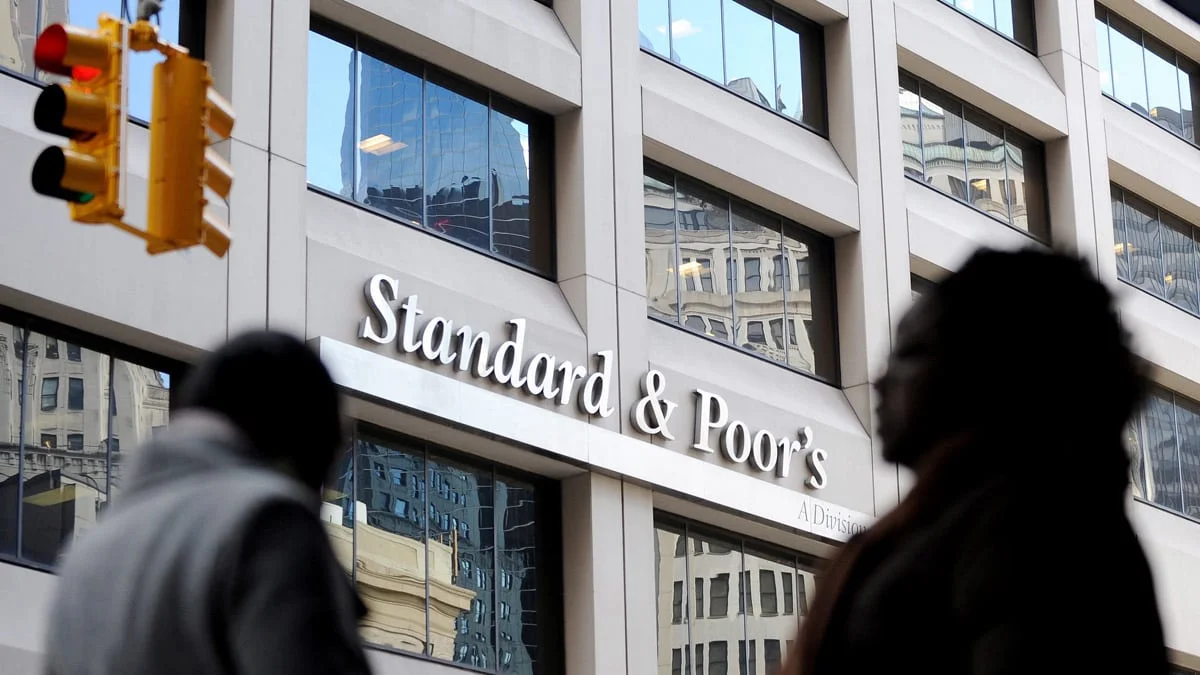Trump has proven adept at taking credit via tweet for a series of decisions by multinational companies to invest in factories and hiring in the United States, most recently the announcement by Fiat (which is part of Chrysler Motors) to invest $1 billion to modernize two of its auto plants in Michigan and Ohio.
Those who have been hard-hit by the dual forces of globalization and technology flocked to Trump's promise to restore jobs and wages, convinced with good reason that only a radical choice for president had any chance of reversing or at least halting these trends.
Trump's plans to appoint Exxon CEO Rex Tillerson as secretary of state has been clouded by confirmation from the CIA that Russian security services engineered the release of hacked information designed to hurt Hillary Clinton’s campaign.
Every week we’re bombarded by numbers about GDP or consumer confidence or some other leading indicator about our economic health and prosperity. Enough, says Zachary Karabell, these numbers don’t accurately reflect our world.
Daniel Gross is joined by Newsweek & The Daily Beast contributor Zachary Karabell to predict what the year 2013 will hold. Karabell says this year will be the year of Mexico and the return of NAFTA.
Will this be the year of Mexico? Global business editor Daniel Gross is joined by Zachary Karabell to predict what 2013 will hold. (Hint: Get used to the acronym NAFTA.)
That's how many days until we go over the so-called fiscal cliff—but should the public panic? Global business Dan Gross and contributor Zachary Karabell on why Americans shouldn't tear out their hair. Yet.
In early December, the ratings agency Standard & Poor’s placed all 15 Eurozone countries under what it calls “negative credit watch.” Typically, that means there is an even possibility that it will downgrade the credit of these countries within 90 days.
The Fed will keep interest rates low for several years and aggressively buy up bonds, Ben Bernanke announced today. When will elected officials catch up to the unsung heroics of central bankers?
The decision by the European Central Bank chief to provide almost unlimited funds to troubled governments could lead to the end of the Eurozone crisis, put a stop to financial dominoes falling, and lead to global economic stability.
That's the interest rate that Spain had to pay for selling six-month bonds. Dan Gross and Zachary Karabell on how this could be the beginning of the end of the Euro crisis.
Is Paul Ryan's budget plan a liability for Romney? Or are Dems celebrating too soon? Patricia Murphy, Zachary Karabell, and John Avlon take a closer look at the details.
The addition of Paul Ryan to the Republican ticket for the 2012 presidential election has been hailed by many as a welcome turn in the campaign away from vacuous mudslinging and toward a more substantive debate about pressing issues. Both Democrats and Republicans appear to welcome that debate, at least now. In that sense, Ryan’s nod for vice president is unequivocally a positive and does in fact inject what has been a curiously hollow campaign with a dose of real substance.
Today’s GDP report is proof of something that many have long suspected. Not, as the first headlines shouted, that the U.S. economy is in trouble, but that we need to stop using these numbers as proxies for how we are faring as a nation.
A large multinational company announces that its business has grown significantly from a year earlier, that its earnings are up more than 20 percent and its sales up nearly 25 percent. Its products continued to see strong demand around the world, with the only negative being that some people apparently held off buying because they wanted to wait for the newest version.
In the past year, several tech companies that once seem inviolable have fractured badly—Research in Motion and Nokia most notably. Yahoo, which yesterday announced a surprising and energetic choice of Marissa Mayer as its new CEO, is not in such dire straits, but only just. Its revenues have been on a multiyear secular decline, occasionally flowing, mostly ebbing; it lost the battle with Google as a search engine; and its content, while stellar, may be unable to support its current structure and identity. Mayer is a bold hire, and visions of another turnaround, that of Apple in the late 1990s, must surely be a dream. The question will be whether that dream has any chance of becoming real.
What began with a scandal that brought down the management of the venerable British bank Barclays is rapidly escalating. Barclays traders attempted to manipulate an obscure benchmark for global interest rates known as LIBOR, and it is now evident that Barclays was far from alone in its behavior.
Today’s jobs report, released to a sweltering nation, will do nothing to dispel the political heat. According to numbers compiled by the Bureau of Labor Statistics, job growth remained stubbornly anemic, with 80,000 new jobs added in June.
The Federal Reserve concluded its June meeting today with a statement and a Ben Bernanke press conference. A variety of measures were announced, including an extension of an arcane but consequential policy of buying hundreds of billions of dollars of Treasury bonds ($267 billion to be exact) in order to keep interest rates low, on top of the $400 billion the Fed has already purchased since last September.
The eyes of the financial world were on Greece once again this weekend, as the Hellenes went to the polls for the second time in six weeks. It’s fair to say that the world hasn’t been this focused on Greece for more than 2,000 years, and the ability of this nation of 11 million people to hold the world in thrall is, on the face of it, rather extraordinary.
The JPMorgan Chase CEO is more correct than we’d like to believe about the impossibility of regulating risk.
Today’s employment figures show that America has entered job stasis. The headline number—69,000 jobs added—was weak at best, made worse by revised data for March and April that subtracted another 50,000 jobs, give or take. The unemployment rate nudged up to 8.2 percent from 8.1 percent, but truly the most notable thing about this release was that there was nothing truly notable.
Over the weekend, the Spanish government bowed to the necessity of seeking a bailout for its banking system. The amount was large: $125 billion in loans from the European Union to stave off the collapse of Spanish banks. The result was greeted with relief by financial markets around the world, with stocks initially rising, bond prices falling, and the outflows from southern European banks for the moment stanched.
The Daily Beast's Zachary Karabell sits down with renowned economist Joseph Stiglitz to talk about a less-discussed form of inequality: how our country's best young minds end up working on Wall Street instead of innovating in laboratories or at universities.
The Daily Beast's Zachary Karabell sits down with reknowned economist to talk about a less-discussed form of inequality: how our country's best young minds end up innovating on Wall Street instead of in laboratories or at universities.
SHOW MORE
All the actors in the Facebook IPO debacle look bad, Zachary Karabell writes, but most of the blame should be directed at Morgan Stanley and the other banks that underwrote the stock offering. Plus, Dan Lyons breaks down 7 things to know about the scandal.
Big business is making big news. Newsweek & The Daily Beast’s John Avlon and Zachary Karabell on JPMorgan’s multi-billion dollar mistake, why Facebook’s IPO was actually a huge success and the fallout resume padding that led to the demise of Yahoo’s CEO.
Facebook’s epically hyped IPO debuted not with a bang but with a whimper. While the company sold $16 billion worth of initial shares, the stock ended the day largely where it began, at $38 a share, leaving the company with a market cap of about $100 billion. The offering was widely derided by the Wall Street community of traders, who viewed the stock's failure to soar on day one as a sign of troubled times ahead for Facebook.
For the third May in a row, events in Greece have taken on global significance. The spark this May, the rising debts and plunging growth of the onetime hub of civilization, is largely the same. But why does the fate of a country with not quite 11 million people and about $300 billion in GDP matter so much? Why does a nation with barely more people than one new Chinese city and an economy hardly larger than the state of Maryland continue to roil international markets? Not since the Trojan War has the fate of the Hellenes been so central to humankind.
Tweets from @ZacharyKarabell
-
RT @BullsBearsFBN: Tonight joining @DavidAsmanfox on @BullsBearsFBN we have @zacharykarabell @caroljsroth @IamJohnBurnett @JCLayfield!… https://t.co/G1QJ6JXJOz
-
Refusing to attend a vote and fleeing the state because you are in the minority and will lose is a cowardly and ant… https://t.co/ERcpjBW3LV
-
RT @BullsBearsFBN: Tonight joining @DavidAsmanfox on @BullsBearsFBN we have @zacharykarabell @JonathanHoenig @lizpeek @GaryKaltbaum! T… https://t.co/CgxAvQLUKi
-
Better to do it themselves: https://t.co/EzKjfcdoJV
-
RT @peterbakernyt: The deal to avert tariffs that Trump announced with great fanfare consists largely of actions that Mexico had alrea… https://t.co/uRqNLD5db5
-
RT @TAS2: Just finished @zacharykarabell's Leading Indicators, and I am so grateful he wrote it. Is it the only book on the h… https://t.co/pYChiS4CxS
-
How much of a threat is dark money? https://t.co/MMOaazckTZ via @nytimes
-
RT @peterbakernyt: As impeachment is debated in DC, check out the history of it from the founders through Johnson, Nixon and Clinton.… https://t.co/e2n7pplfZ5
-
You often need to work w people who revile you and who you don’t like. Nixon and a very hostile congress passed muc… https://t.co/TsvrMOYBnA
-
It was a. Very. Serious. Photo https://t.co/edT9d1k82r
-
Not quite the intended outcome: Trump’s Trade War Is Making Mexico Great https://t.co/ErQ5H6Nski via @politicomag #china #mexico #tariffs
-
About to have what is sure to be a compelling convo w @SSRoachUSChina on China. You can watch live via @techonomy… https://t.co/TFd5fbHvIY





























On Tuesday, Tesla Motors—the eclectic, aggressive electric-car company that is promising to upend the automotive industry—was in the news for two seemingly distinct but in fact related issues.